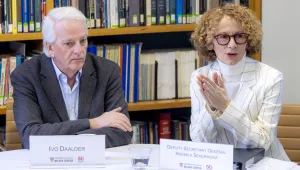
2023 marked eighty years since the wartime adoption of the BRUSA Agreement between Great Britain and the United States. This 1943 document codified the growing relationship between U.S. and U.K. signals intelligence organizations and included policies governing the exchange of personnel and joint regulations for handling sensitive material. Security directives and protocols aligned operational processes between the democratic governments, setting new cooperative standards for nation-states battling authoritarian regimes. Victory led to the UKUSA 1946 Agreement, a more formal document that served as the bedrock of what became the ‘Five Eyes’ alliance of the U.S., U.K., Canada, Australia, and New Zealand. Over subsequent decades, allies possessing shared geopolitical interests and democratic values relied upon complementary, individual operational strengths for the shared benefit of the alliance overall. Routine intelligence sharing calcified as an operational norm, and structured interdependence evolved to support a decision advantage for allied democracies. These historical inflection points identify useful parallels for national leaders today as they navigate current geopolitical turbulence and anticipate future challenges beyond the horizon.
Stein, Heidi von and Michael Miner . “Forging a Democratic Decision Advantage.” Belfer Center for Science and International Affairs, Harvard Kennedy School, October 2023





